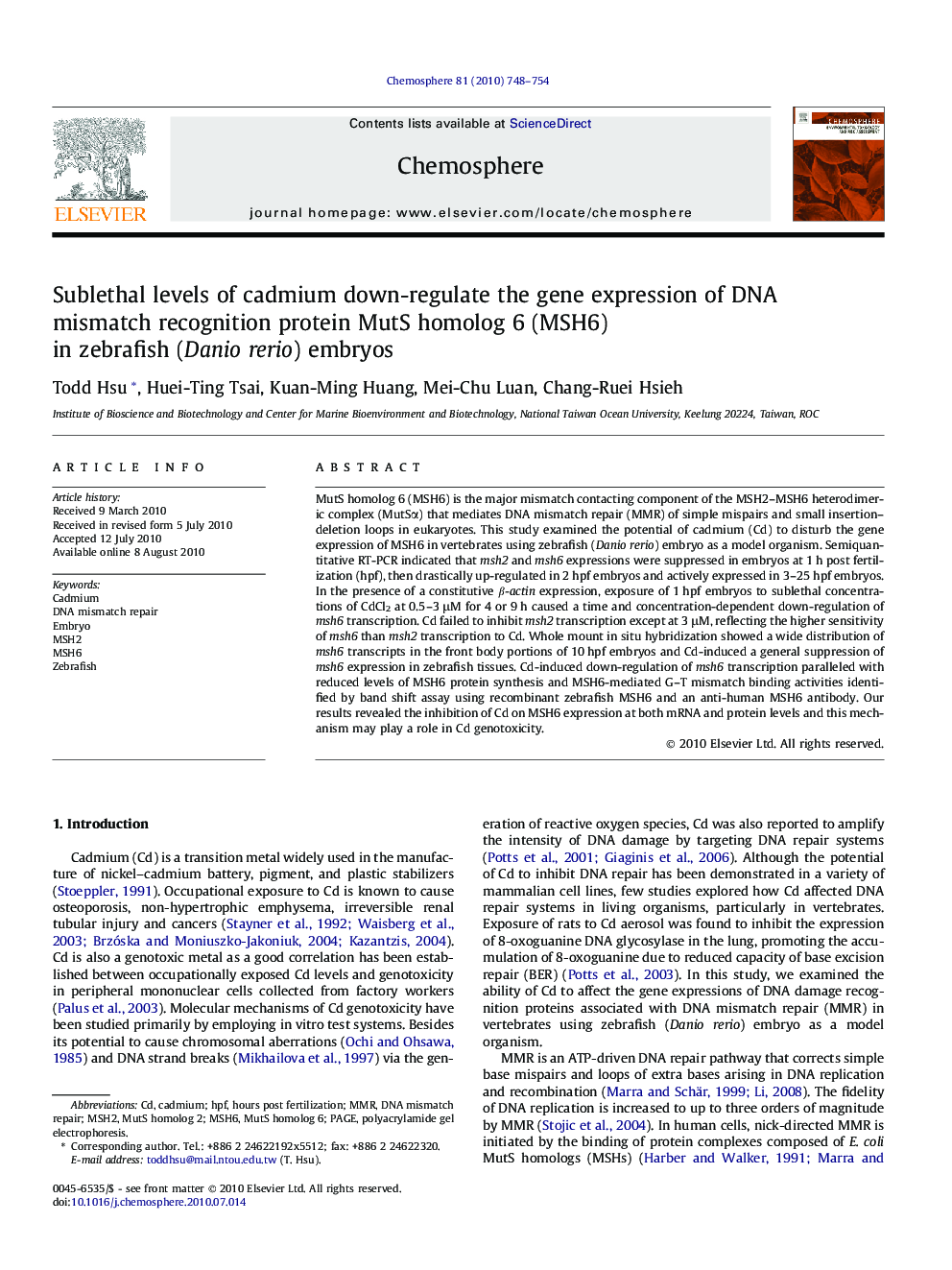| کد مقاله | کد نشریه | سال انتشار | مقاله انگلیسی | نسخه تمام متن |
|---|---|---|---|---|
| 4411704 | 1307605 | 2010 | 7 صفحه PDF | دانلود رایگان |

MutS homolog 6 (MSH6) is the major mismatch contacting component of the MSH2–MSH6 heterodimeric complex (MutSα) that mediates DNA mismatch repair (MMR) of simple mispairs and small insertion–deletion loops in eukaryotes. This study examined the potential of cadmium (Cd) to disturb the gene expression of MSH6 in vertebrates using zebrafish (Danio rerio) embryo as a model organism. Semiquantitative RT-PCR indicated that msh2 and msh6 expressions were suppressed in embryos at 1 h post fertilization (hpf), then drastically up-regulated in 2 hpf embryos and actively expressed in 3–25 hpf embryos. In the presence of a constitutive β-actin expression, exposure of 1 hpf embryos to sublethal concentrations of CdCl2 at 0.5–3 μM for 4 or 9 h caused a time and concentration-dependent down-regulation of msh6 transcription. Cd failed to inhibit msh2 transcription except at 3 μM, reflecting the higher sensitivity of msh6 than msh2 transcription to Cd. Whole mount in situ hybridization showed a wide distribution of msh6 transcripts in the front body portions of 10 hpf embryos and Cd-induced a general suppression of msh6 expression in zebrafish tissues. Cd-induced down-regulation of msh6 transcription paralleled with reduced levels of MSH6 protein synthesis and MSH6-mediated G–T mismatch binding activities identified by band shift assay using recombinant zebrafish MSH6 and an anti-human MSH6 antibody. Our results revealed the inhibition of Cd on MSH6 expression at both mRNA and protein levels and this mechanism may play a role in Cd genotoxicity.
Journal: Chemosphere - Volume 81, Issue 6, October 2010, Pages 748–754